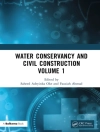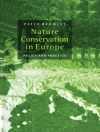This book discusses essential approaches and methods in connection with engineering education for sustainable development. Prepared as a follow-up to the 2015 Engineering Education in Sustainable Development (EESD) Conference held in British Columbia, Canada, it offers the engineering community key information on the latest trends and developments in this important field. Reflecting the need to address the links between formal and informal education, the scholars and professionals who contribute to this book show by means of case studies and projects how the goal of fostering sustainable development in the context of engineering education can be achieved. In particular, they discuss the need for restructuring teaching at engineering‐focused institutions of higher education and provide practical examples of how to do so.
The book places special emphasis on state-of-the art descriptions of approaches, methods, initiatives and projects from around the world, illustrating the contribution of engineering and affiliated sciences to sustainable development in various contexts, and at an international scale.Inhaltsverzeichnis
Comparing the Outcomes of Horizontal and Vertical Integration of Sustainability Content into Engineering Curricula Using Concept Maps.- A New Program in Sustainable Engineering: A Platform for Integrating Research and Service into the Classroom Through Global Engagement.- Implementing a Collaboration Activity in Construction Engineering Education.- Implementing a Collaboration Activity in Construction Engineering Education.- Development of a Case-based Teaching Module to Improve Student Understanding of Stakeholder Engagement Processes within Engineering Systems Design.












